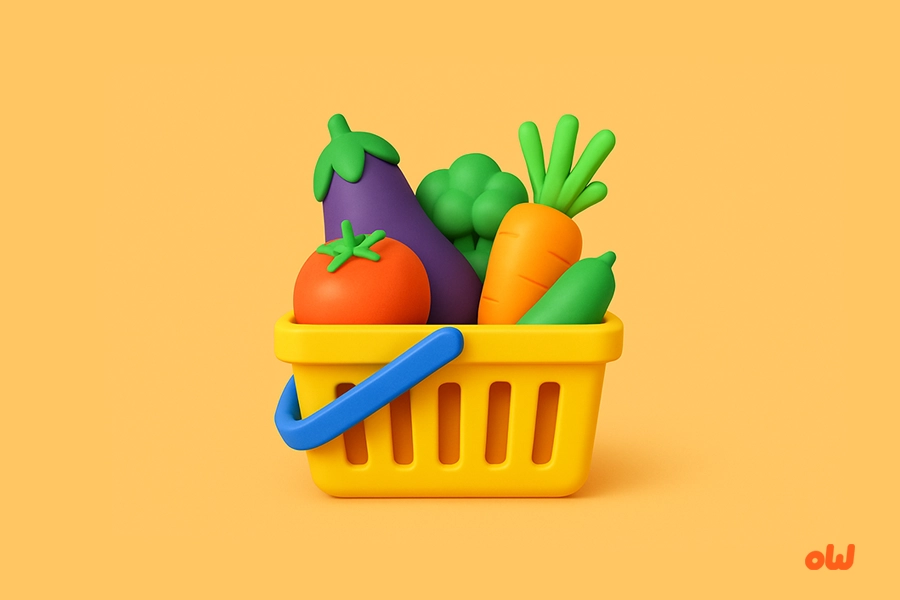Quiz: What Vegetable Are You?

What if your personality isn’t just a set of traits, but an entire vegetable with its own character and destiny? Crunchy carrot or substantial potato, diplomatic tomato or refreshing cucumber – behind each vegetable lies an entire universe of meanings that may surprisingly accurately reflect your character. Let’s dive into the world of vegetable archetypes and find out which vegetable is hiding in the depths of your soul.
What Is a “Vegetable Personality Type”?
A vegetable personality type is a creative psychological construct based on projecting human character traits onto familiar vegetables. At the core of this concept lies the ancient tradition of metaphorical thinking, when people described themselves and others through comparisons with natural objects.
Why vegetables specifically? First, they are diverse in color, shape, taste, and texture – just like human personalities. Second, each vegetable has its unique properties, applications, and history, creating a rich field for metaphors. Third, vegetables are part of everyone’s daily life, making such comparisons understandable and relatable.
The vegetable personality type is not a strict scientific classification, but a playful tool for self-discovery which, nevertheless, can reveal unexpected facets of your character and behavior. As Johan Huizinga wrote, “often it is precisely in play that we discover what is hidden from us in serious reflection.”
What Is This Quiz About?
The “What Vegetable Are You?” quiz offers participants a series of questions about preferences, behavior in different situations, and life values. The results are analyzed not through the prism of traditional psychological categories, but through the metaphor of the vegetable kingdom.
The quiz questions cover various aspects of personality:
- How do you react to stress?
- What role do you usually play in a team?
- What kind of recreation do you prefer?
- How do you feel about changes in life?
- What’s more important to you – the journey or the result?
Based on the answers received, the algorithm determines which vegetable most accurately reflects your personality. But it’s important to understand that the quiz’s goal is not to label you, but to provide a new, unusual perspective for self-analysis and, perhaps, reveal character traits that you previously didn’t notice or underestimated.
Personality Types Presented in the Quiz
In our quiz, we’ve defined five main “vegetable” personality archetypes, each possessing unique characteristics and qualities. These types represent a metaphorical reflection of various temperaments, communication styles, and life strategies that we encounter in everyday life.
Carrot – “The Optimist-Enthusiast”
“Carrot” personalities are bright, energetic optimists who are always striving upward and forward. Just as a carrot pushes through the soil toward the sun, these people overcome difficulties with inexhaustible enthusiasm. They have keen vision regarding opportunities and prospects, rarely get discouraged, and energize those around them.
The carrot symbolizes purposefulness and perseverance. People of this type are natural leaders and initiators who aren’t afraid to be pioneers. Their bright individuality is noticeable from afar, like the orange color of a carrot in green tops.
History has many “carrot” personalities: Richard Branson, Oprah Winfrey, Theodore Roosevelt – people whose optimism and energy changed the world.
Tomato – “The Empathetic Diplomat”
If you relate to the role of peacemaker and emotional center of any company, perhaps you’re a “tomato.” These personalities, like ripe tomatoes, are filled with juicy emotional depth and a subtle understanding of human relationships.
“Tomatoes” have an amazing ability to adapt to different social contexts while maintaining their essence. They can balance between different viewpoints, finding compromises in the most difficult situations.
Just as a tomato is technically a fruit but used as a vegetable, people of this type often combine opposite qualities: they can be simultaneously emotional and rational, soft and firm in their convictions, traditional and innovative.
Potato – “The Reliable Worker”
“Potato” personality types are the backbone of any team and family. Just as potatoes have fed entire nations for centuries and saved them from starvation, these people always prove to be the most reliable and resilient in difficult times.
Their strength lies in thoroughness, patience, and practicality. The “potato” doesn’t seek to shine with external gloss but possesses rich inner content and versatility. Hundreds of different dishes can be prepared from potatoes – similarly, these people are amazingly multifunctional and adaptable to various tasks.
“Potato” personalities are excellent performers who can be relied upon in any situation. They create the foundation upon which others can build bold projects and ideas.
Cucumber – “The Phlegmatic Mediator”
“Cucumber” personality types are distinguished by their remarkably fresh perspective and ability to cool heated passions. Just as a cucumber is 96% water and brings refreshment on a hot day, these people bring clarity and calmness to complex situations.
They possess natural imperturbability and an ability to adapt to various circumstances. “Cucumbers” dislike conflicts and often act as mediators between opposing sides.
These personalities usually have a subtle sense of humor and an ability to find positivity even in the most difficult situations. They fit perfectly into any “salad” of human relationships, complementing and refreshing it with their presence.
Pumpkin – “The Creator-Storyteller”
“Pumpkin” personalities are bright individuals with rich inner worlds and a tendency toward creativity. Just as a pumpkin attracts attention with its golden color and impressive size, these people often become the soul of the company and generators of ideas.
“Pumpkins” have developed imaginations and the ability to see the unusual in the ordinary. They, like the pumpkin, which can transform from an ordinary vegetable into Cinderella’s magical carriage or Jack’s eerie lantern, know how to create a special atmosphere around themselves and transform reality.
These personalities are seasonal in their manifestations – they can spend long periods accumulating energy and ideas, only to then reveal themselves in all their splendor. “Pumpkins” often become keepers of traditions and storytellers, connecting the past with the present.
Why Food Is Also a Language of Personality
The connection between food and personality has deep roots in human culture. Hippocrates proposed a classification of temperaments associated with bodily fluids, many of which were associated with certain foods. In modern psychology, there’s an entire field studying the connection between food preferences and character traits.
Food is not just fuel for the body; it’s part of our identity, cultural code, and value system. We choose, prepare, and consume food in ways that are deeply individual and reflect our personal characteristics.
Vegetables are particularly interesting as a personality metaphor thanks to their diversity, versatility, and universality. They form the basis of nutrition in all world cultures, yet have distinctly individual characteristics.
Using a “vegetable” typology is not only an amusing way of self-discovery but also an opportunity to look at yourself in a new way, to see your strengths and weaknesses through the prism of natural analogies. Sometimes it’s precisely metaphors and images that help us better understand complex psychological constructs.
The next time you prepare a vegetable salad, take a closer look at the ingredients – perhaps in them you’ll see a reflection of your own personality or the characters of your loved ones. And to know for sure which vegetable corresponds to your personality type, take our fascinating quiz “What Vegetable Are You?” and discover a new way of self-discovery!
Questions Overview
- With a sharp crunch that scares away anyone who tries to take a bite.
- With a bright color warning of your strength.
- By hiding underground, staying unnoticed.
- With sweetness, so you’d be left alone as a valuable crop.
- I’d add thickness and heartiness.
- I’d bring a bright flavor and aroma.
- I’d remain a fresh, crunchy accent.
- I’d lend a subtle sweetness and depth.
- Stretching upward toward the sun through dense soil.
- Spreading long vines across the ground.
- Ripening on the vine among the foliage.
- As tubers hidden beneath the earth.
- Pulled up by your green top.
- Carefully cut off the vine.
- Dug out of the earth with a spade.
- Snapped off the vine with a quick tug.
- Fresh, slightly watery, with a hint of bitterness.
- Juicy, sweet-and-sour, and full-bodied.
- Neutral, starchy, and versatile.
- Crunchy, sweetish, with an earthy note.
- Absorb moisture and become even juicier.
- Ripen faster, deepening your color.
- Hide deeper in the cool soil.
- Grow sweeter under the sun’s rays.
- Diced into cubes for freshness.
- Added for brightness and juiciness.
- Boiled and mixed with other ingredients.
- Grated for crunch and color.
- In a root cellar, in dryness and darkness.
- In a jar, pickled or as a sauce.
- In the refrigerator to preserve freshness.
- In a cool place to keep your crunch.
- Enrich it by leaving nutrient-rich roots behind.
- Attract pollinators with your blossoms.
- Retain moisture thanks to your dense foliage.
- Strengthen the ground with your tubers.
- “A quiet but reliable neighbor.”
- “Bright and noticeable, always the center of attention.”
- “Calm and unpretentious.”
- “Persistent, forging your own path.”
- Wait out the winter in the ground, conserving energy.
- Blossom in spring, preparing for summer fruiting.
- Grow quickly in the warmth of summer.
- Ripen slowly in autumn, building sweetness.
- Fill them with energy and vitamins.
- Refresh them in heat and quench their thirst.
- Serve as the basis for countless dishes.
- Add brightness and flavor to cooking.
- Lie in the basket, attracting attention with your color.
- Wait modestly for your buyer in a corner.
- Crunch with every touch, emphasizing freshness.
- Peek out from a bunch of greens, enticing with your shape.
- Fried until golden and crispy.
- Added to salad fresh and crunchy.
- Stewed with spices for aroma.
- Boiled until tender for soup.
- Grow alongside them, supporting them with your roots.
- Shade them with your leaves, protecting from the sun.
- Share nutrients through the soil.
- Attract bees, pollinating both yourself and others.






